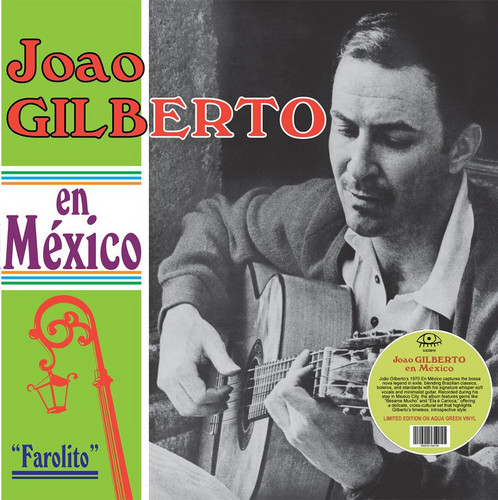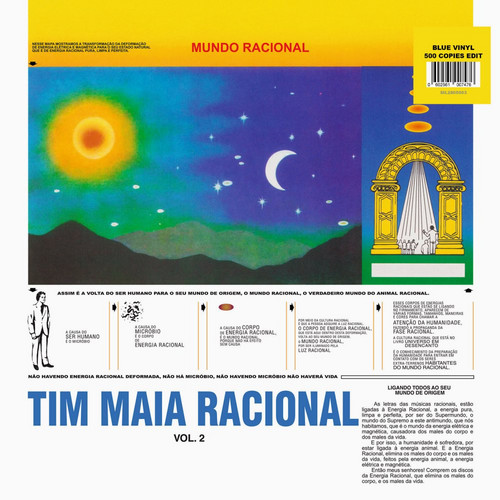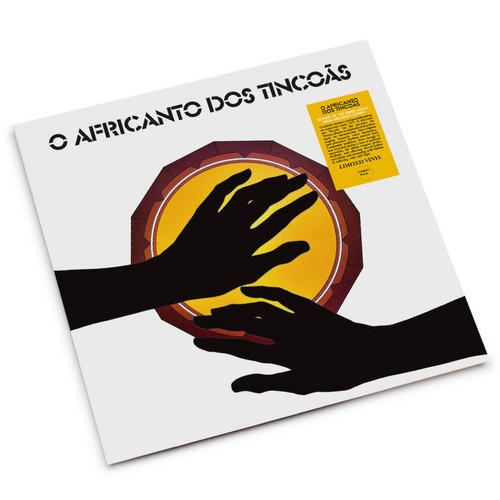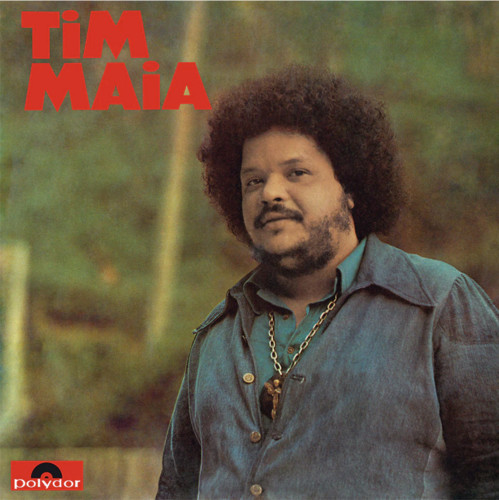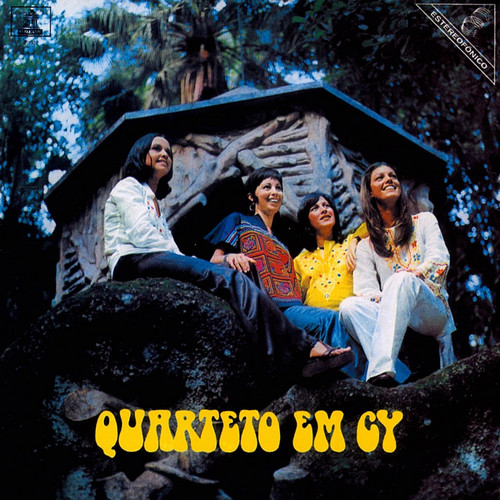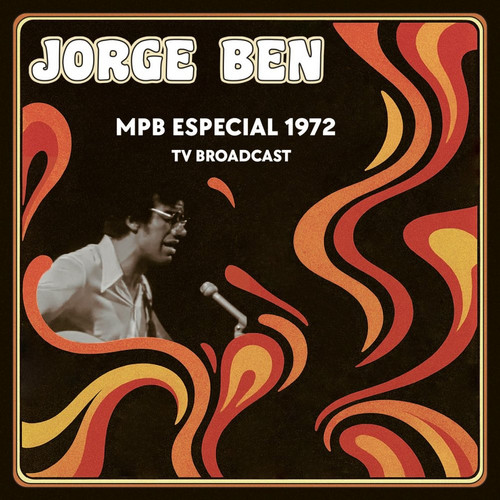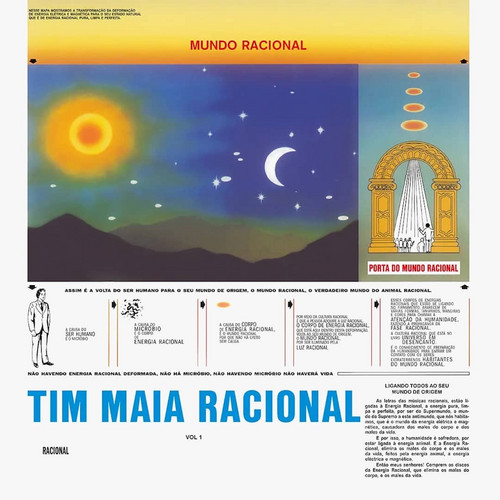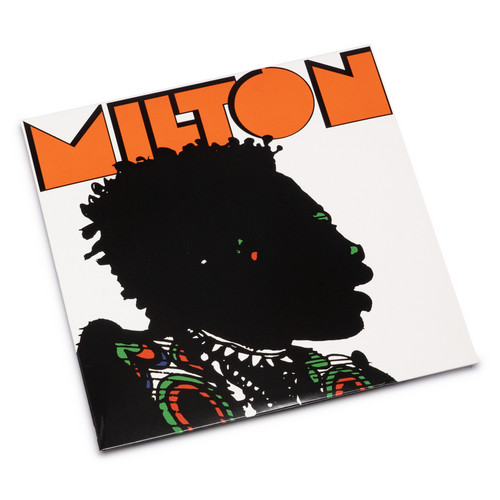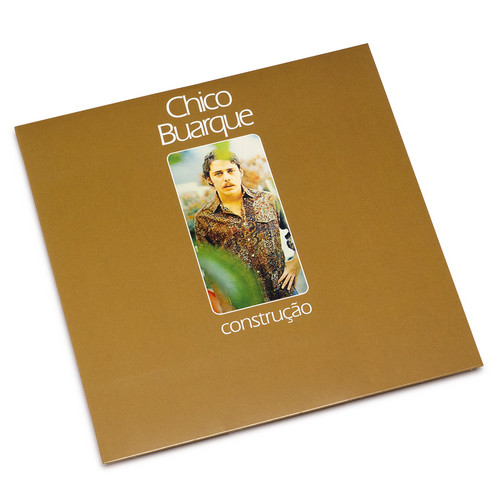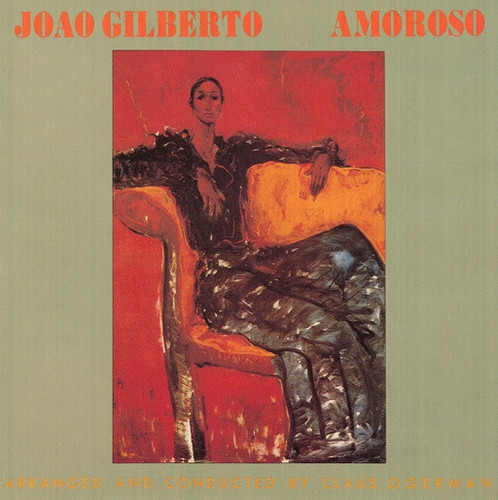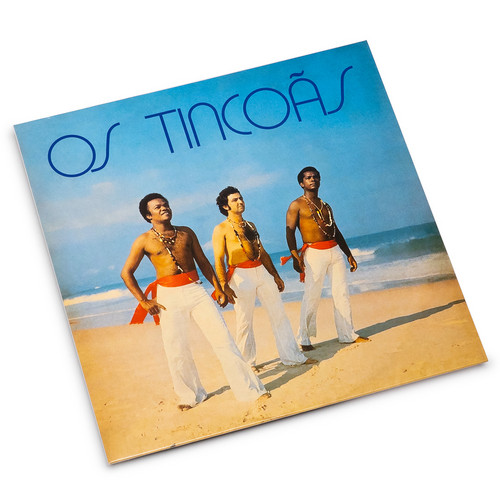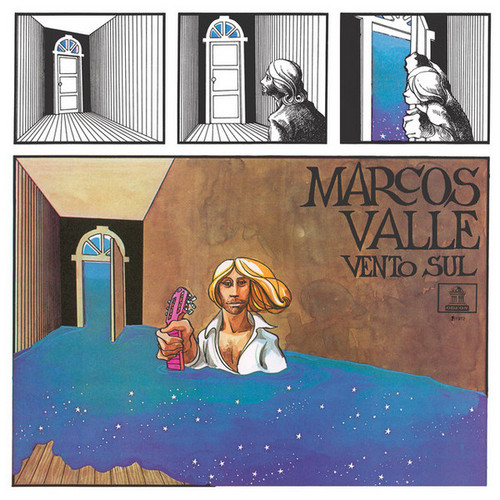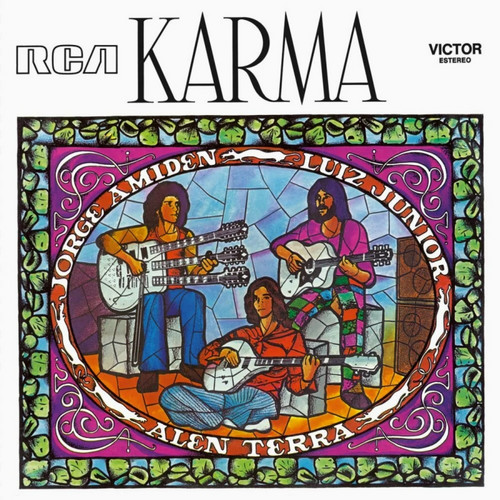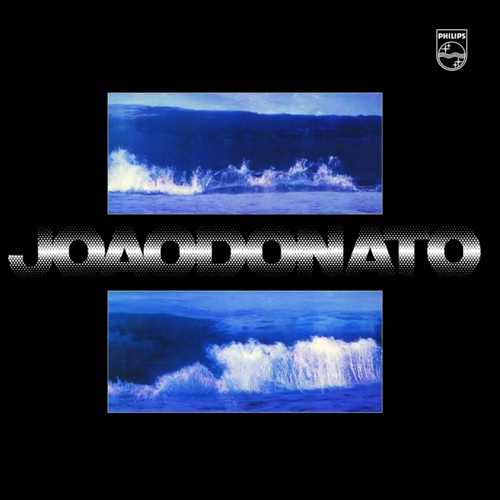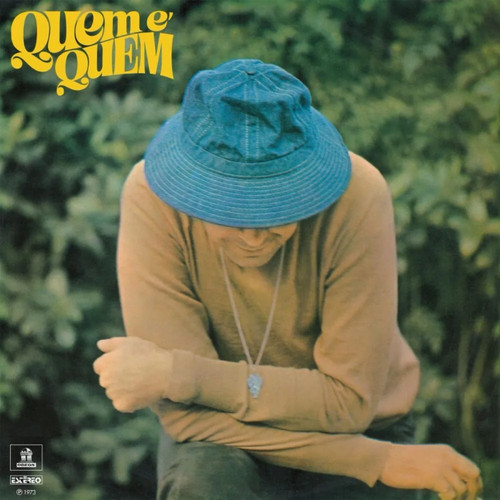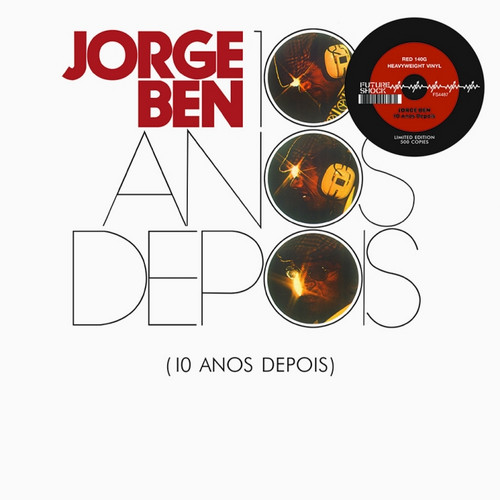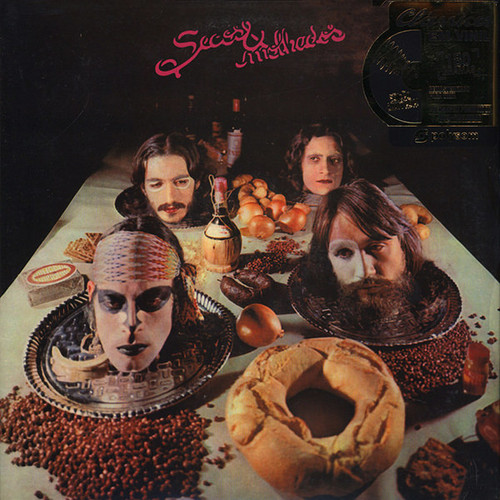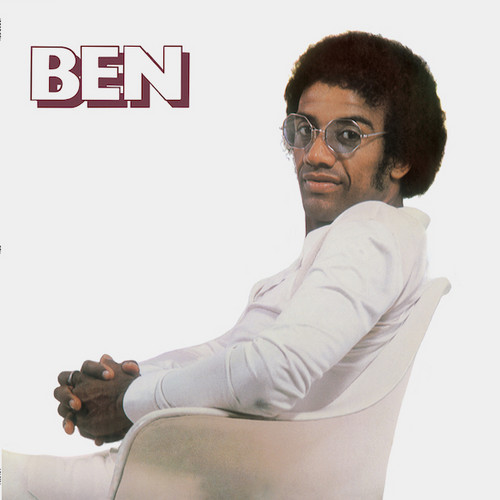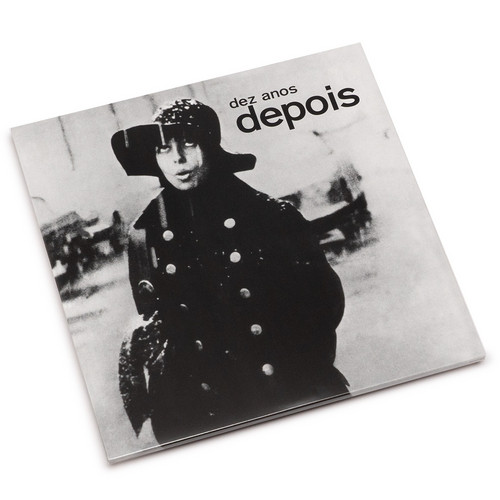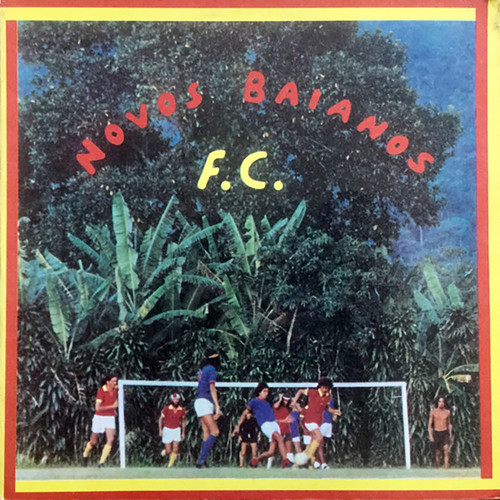En Mexico
A hidden gem from bossa nova pioneer João Gilberto resurfaces with the reissue of 1970 En México, capturing the artist in artistic exile during his time in Mexico City. This intimate album blends timeless Brazilian classics, sultry boleros, and jazz standards, all filtered through Gilberto’s signature whisper-soft vocals and minimalist guitar accompaniment.
Recorded live in the vibrant heart of Mexico City, En México showcases Gilberto’s unparalleled ability to transcend borders. Standout tracks…
Racional Vol 2
Music historians and funk aficionados rejoice: the ultra-rare second volume of Tim Maia's groundbreaking Racional album series from the 1970s is back, delivering an even funkier, harder-edged evolution of the Brazilian soul legend's visionary sound.
Building on the heavy soul vibes of Maia's early '70s Polydor albums, this gem channels a potent dose of American funk and R&B—drawn straight from the raw energy of the East Coast indie scene. Tim Maia, one of Brazil's few true masters of the groove …
O Africanto Dos Tincoas
The third album by the legendary Bahian trio, originally released in 1975 on Odeon and finally back on vinyl. One of the most spiritually charged records to emerge from Brazil during the military dictatorship years. Hold on to your hats. Os Tincoãs - Mateus Aleluia, Heraldo and Dadinho - came from Cachoeira, in the Recôncavo Baiano, a region steeped in Afro-Brazilian traditions where Candomblé terreiros and Catholic chapels existed side by side, where sacred rhythms passed from generation to gen…
Tim Maia 1973
Tim Maia’s self-titled 1973 album is one of those records that hits you from the very first groove and doesn’t let go. Originally released on Polydor Brazil, this was the fourth in a series of Tim’s self-titled albums and many fans and critics still consider it the crown jewel. Packed with irresistible hooks, lush arrangements, and that unmistakable Tim Maia swagger, the album captures the singer at the peak of his creative powers. If you’re new to Tim Maia, here’s the quick story: born in Rio d…
Quarteto Em Cy
Originally released in 1972 on the Odeon label, Quarteto Em Cy stands as a high-water mark in the group’s prolific discography—and a hidden gem for collectors of Brazilian vinyl. Known for their intricate vocal harmonies and deep roots in the bossa nova movement, the quartet ventures into post-bossa territory here, where sophistication meets groove in all the right ways.Arrangements by Edu Lobo and Luiz Eça (of Tamba Trio) lend the album a richly layered sound—elegant, jazzy, and emotionally res…
MPB Especial 1972 TV Broadcast
Dive into an extraordinary musical moment with Jorge Ben - MPB Especial 1972 TV Broadcast, a rare and captivating live performance recorded during a turbulent era in Brazil’s history. This unique album captures Jorge Ben, one of Brazil’s most influential musicians, delivering extended versions of his timeless classics such as "Fio Maravilha", "Mas Que Nada", "País Tropical", and "Domingas", along with other beloved tracks.
Recorded live for television in 1972, while Brazil was under a strict mil…
Racional Vol 1
Racional Vol. 1 is the 1975 album from Brazilian funk and soul master Tim Maia, created during his brief but intense conversion to the Rational Culture cult. The album’s cosmic themes, spiritual lyrics, and deeply grooving arrangements have since made it a revered cult classic - once obscure and self-released, now hailed for its blend of spiritual quest and irresistibly tight Brazilian funk.
Milton
“Milton,” the fourth studio album from groundbreaking Brazilian artist Milton Nascimento, emerged in 1970 as a pivotal moment for the Minas Gerais music scene. Released in partnership with the progressive rock band Som Imaginário, this landmark record continues to inspire generations, both for its audacious blending of genres and its trailblazing studio innovations.
Renowned for its rich instrumentation and stylistic diversity, “Milton” laid the essential groundwork for Nascimento’s subsequent m…
Construcao
Construção (Portuguese for 'Construction') is the eighth studio album by Brazilian singer-songwriter Chico Buarque, released in December 1971. It was composed in periods between Buarque's exile in Italy and his return to Brazil. Lyrically, the album is loaded with criticisms of the Brazilian military dictatorship, especially with regard to the censorship imposed by the government at the time. It is widely regarded by music critics as one of the greatest Brazilian albums of all time.
Amoroso
When this album landed on the turntables in 1977, João Gilberto, the Nestor and father of bossa nova, had long enjoyed praise for his life’s work which was still far from complete. His straightforward, sometimes dry and rasping voice sounds out distinctively in the mezzo piano and forges his totally unique and personal style of playing Latin jazz with international appeal. With "Wave", "Triste", "Caminhos Cruzados" and "Zingaro" he brings together on this LP four splendid numbers by his congenia…
Os Tincoãs
Creatively visionary and groundbreaking on numerous terms, 1973 'Os Tincoãs' revolutionized Brazilian music by harmonizing Afro-religious singing, heavenly vocal harmonies, and frawing on Yoruba mythology, Samba, Capoeira chants and spiritual songs.
Vento Sul
*2025 stock * A holy grail! This is one of Marcos Valle's best-ever albums – and it's certainly the one to best realize the larger scope he was heading for in the years after the bossa – that sublime mix of jazz and more expansive arrangements – a perfect fit for the growing sophistication of Valle's songwriting. The record is fantastic – done with a sweeping sound that still leaves us breathless after all these years – and put together with an approach to composition that is virtually indescrib…
Karma
*2025 stock * An obscure bit of Brazilian folk rock from the early 70s - recorded with an easygoing, laidback style that's really wonderful! The group's working mostly here in a blend of acoustic guitar and percussion and some of the guitar work is done by Jorge Amiden of O Terco, using a strange three-necked guitar that looks mighty weird in the picture! This instrument seems to be played using a bow at times - creating a "guitar strings" sort of feel that gives the record a bit more class th…
Lugar Comum
*2025 stock* A sweet electric 70s session from the mighty Joao Donato – very different than his earlier bossa work of the 60s – and with the same funky appeal as the best work on his classic Quem E Quem album! This set's got a tighter feel overall – very much in a samba soul style, with lots of great Brazilian bits mixed up with funk and jazz touches – including a range of great keyboards handled by Donato himself! Drums are by the mighty Wilson Das Neves – who brings in some breaks at a few poi…
Quem É Quem
When João Donato released “Quem é Quem” in 1973, he had already been in the music industry for over 20 years, gaining national and international recognition. Nevertheless, the album marked the beginning of a new phase in his career: the surprising multi-instrumentalist included lyrics in his songs for the first time. It is one of his most important albums, which now returns to shelves pressed on 180gr matte green coloured vinyl.
10 Anos Depois
10 Anos Depois is the tenth album by Brazilian musical artist Jorge Ben, released in 1973. It is a collection of popular songs from the first decade of his career re-recorded as medleys.
Secos & Molhados (1973) Lp
Secos & Molhados is the debut album of the group of the same name, released in August 1973. The album includes poetry works of authors such as Vinícius de Moraes, Manuel Bandeira and João Apolinário, and dances and songs from Portuguese folklore and Brazilian traditions. The album, as well as the band itself, emerged in the midst of a time of censorship and military dictatorship in Brazil, inspiring the band to portray themes such as freedom of expression, racism and war as a form of protest. It…
Ben
The long unavailable ninth album by Brazilian star Jorge Ben. Released in 1972, "Ben" comes from one of Jorge Ben’s most artistically important phases, the early 70s. The album has some of Ben’s most famous songs, “Taj Mahal” (plagiarized by Rod Stewart on his song “Da Ya Think I’m Sexy?”, as the British singer admitted himself in 2012), and “Fio Maravilha”, paying homage to Flamengo’s iconic football player Fio Maravilha.
Dez Anos Depois
Nara Leão's Dez Anos Depois, released in 1971, is a stunning double album that revisits her musical journey and celebrates her contributions to Brazilian music. Known as the "Muse of Bossa Nova," Leão recorded this reflective and intimate collection of reinterpreted classics in both Paris and Rio de Janeiro. The album features timeless tracks like "Chega de Saudade," "O Barquinho," and "Corcovado," showcasing her gentle yet emotionally powerful vocals paired with minimalist acoustic arrangements…
Novos Baianos F.C.
*2024 stock * After the release of “Acabou Chorare”, the Novos Baianos band moved to a farm in Jacarepaguá and recorded the excellent “Novos Baianos F.C.” there (1973). In this place they lived between music and soccer, which is why they gave the album this title. The album features 10 unreleased tracks, with the exception of “Samba da Minha Terra”, by Dorival Caymmi. Among the songs are “Sorrir e Cantar Como Bahia”, “Vagabundo não é Fácil”, “Os Pingos da Chuva” and the instrumentals “Alimente” …
